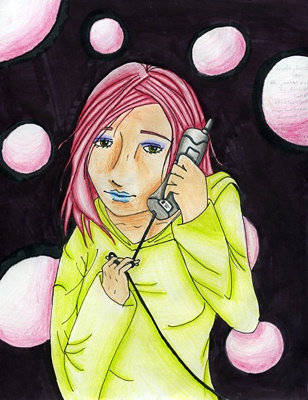All Nonfiction
- Bullying
- Books
- Academic
- Author Interviews
- Celebrity interviews
- College Articles
- College Essays
- Educator of the Year
- Heroes
- Interviews
- Memoir
- Personal Experience
- Sports
- Travel & Culture
All Opinions
- Bullying
- Current Events / Politics
- Discrimination
- Drugs / Alcohol / Smoking
- Entertainment / Celebrities
- Environment
- Love / Relationships
- Movies / Music / TV
- Pop Culture / Trends
- School / College
- Social Issues / Civics
- Spirituality / Religion
- Sports / Hobbies
All Hot Topics
- Bullying
- Community Service
- Environment
- Health
- Letters to the Editor
- Pride & Prejudice
- What Matters
- Back
Summer Guide
- Program Links
- Program Reviews
- Back
College Guide
- College Links
- College Reviews
- College Essays
- College Articles
- Back
Twilight: The Complete and Utter Destruction of Feminism
As far as ridicule goes, I am well aware that I am late to hop on the bandwagon of Twilight mockery. Needless to say, Stephanie Meyer was no literary genius. But I don’t care to dissect the film’s wooden acting or its preposterous makeup decisions. Rather, I have chosen to discuss an often overlooked facet of the franchise, something that, as a feminist, shocks and horrifies me: the absolute elimination of women’s independence.
In the creation of her dull protagonist, Bella Swan, Meyer presented a character so helpless and needy that I cringe at the very mention of her. It doesn’t bother me that Bella is presented as being not particularly pretty—plenty of heroines have gotten along without beauty. Her personality, though, is even plainer than her face, and even the character admitted that she wasn't talented or special.
Yet boys fawn over this rice-cracker bland girl when she moves to the rainy town of Forks, Washington, and girls long to be her. The plot of this filth, already irrational, takes a turn for the crazy when in walks the pale, sparkly vampire who desperately wants to kill our heroine. Although he graduated years before, this creepy stranger spends his days preying after teenage girls, going so far as to watch them in their sleep to “protect” them. Shudder. The author is quick to remind us, that, even though Edward is over one hundred, and Bella isn't yet a legal adult, this relationship is perfectly fine, because he looks seventeen.
Not only is Bella boring, but she also appears to be completely brain-dead, as she voluntarily spends time alone with the man who is longing to suck her neck. Instead of calling the police, or at the very least investing in a pair of curtains, she flagrantly wanders into the woods with her stalker, knowing that there are no other people in sight. Sure, one might argue that he had saved her earlier, but it was due to her own stupidity that she even ended up in the scenario. Bella made the conscious decision to abandon her friends and stumble around a city she knew nothing about, at night, based on the fact that “Phoenix was bigger.”
The story gets stranger as she grows closer to her follower, and when Edward—rightly so—breaks up with the girl with all of the facial expression of a plank of wood, she is unable to function, spending most of the movie screaming and holding her chest. Yes, breakups are difficult, but her ridiculously-old fashioned boyfriend didn't even touch her below the neck—they didn't do anything but stare at each other. She disconnects from the entire world, and spends her entire days sulking in corners—according to the movie she literally spends four months in a chair, moodily looking out her window.
New Moon ends in a scenario that would be impossible in modern times, given the existence of cell phones; the movie was ripped off entirely from Romeo and Juliet, but because Meyer acknowledges the play, it is now homage. The third movie is nothing but fillers, love triangles, and more excuses for Taylor Lautner to take off his shirt and make teen girls swoon. Eventually, our pale protagonist achieves her goal of marrying her stalker, bearing his freaky mutant hybrid children, and getting transformed into a monster that must walk the Earth forever. In other words, family fun all around!
So, to recap: a girl who did absolutely nothing whatsoever managed to win the hearts of all, but sacrificed her life of fulfilling popularity for some creep who wanted to kill her, ensuring that she would never see civilization or her family ever again. But in doing so, at least she managed to lose all vestiges of her humanity and nearly died in childbirth! Twilight is a textbook example of Stockholm syndrome, and not only manages to slaughter any ideals of feminism; it also encourages young girls give up their identities for the chance of spending the rest of their existences with psychopathic cult leaders.

Similar Articles
JOIN THE DISCUSSION
This article has 0 comments.
